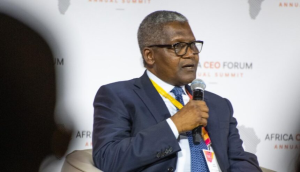
The Presidency has reassured Nigerians that the proposed tax reform bills before the National Assembly will not impoverish northern states or enrich Lagos and Rivers states at their expense. This clarification comes amid criticisms that the reforms could disrupt fiscal federalism and centralize tax authority.
In a statement released on Monday, December 2, 2024, titled “No Part of Tax Reform Bills Recommends Scrapping TETFUND, NASENI, and NITDA. No Provision Will Impoverish the North”, Special Adviser to the President on Information and Strategy, Bayo Onanuga, said, “The tax reform bills will not make Lagos or Rivers more affluent and other parts of the country poorer, as recklessly canvassed by critics. Instead, they aim to enhance the quality of life for Nigerians, especially the disadvantaged, who are trying to make a living.”
The reforms, which include the Nigeria Tax Bill 2024, Nigeria Tax Administration Bill, Nigeria Revenue Service (Establishment) Bill, and Joint Revenue Board (Establishment) Bill, seek to consolidate existing tax laws, create clearer administrative frameworks, and establish bodies such as the Tax Appeal Tribunal and Office of the Tax Ombudsman.
Onanuga dismissed claims that the reforms would lead to the scrapping of agencies like the Tertiary Education Trust Fund (TETFUND) and the National Agency for Science and Engineering Infrastructure (NASENI). He said, “Contrary to the lies being peddled, the bills do not suggest that NASENI, TETFUND, and NITDA will cease to exist in 2029 after the passage of the bills.”
Despite these reassurances, the bills have drawn criticism from several quarters, including the Northern Governors’ Forum. At a meeting on October 28, 2024, the governors rejected the proposed derivation-based Value Added Tax (VAT) distribution model, arguing that it would undermine the financial autonomy of their states.
The National Economic Council (NEC) also requested that President Bola Tinubu withdraw the tax reform bills for further consultation. However, the Presidency has ruled out withdrawing the legislation, stating that adjustments can be made during the legislative process.
“While the legislative process takes its course, the President welcomes inputs and debates. However, these arguments must be based on facts to avoid misleading the public,” Onanuga added.
The reforms, according to the government, are the product of extensive consultation and are essential to modernizing Nigeria’s tax system, addressing inefficiencies, and boosting economic growth.








